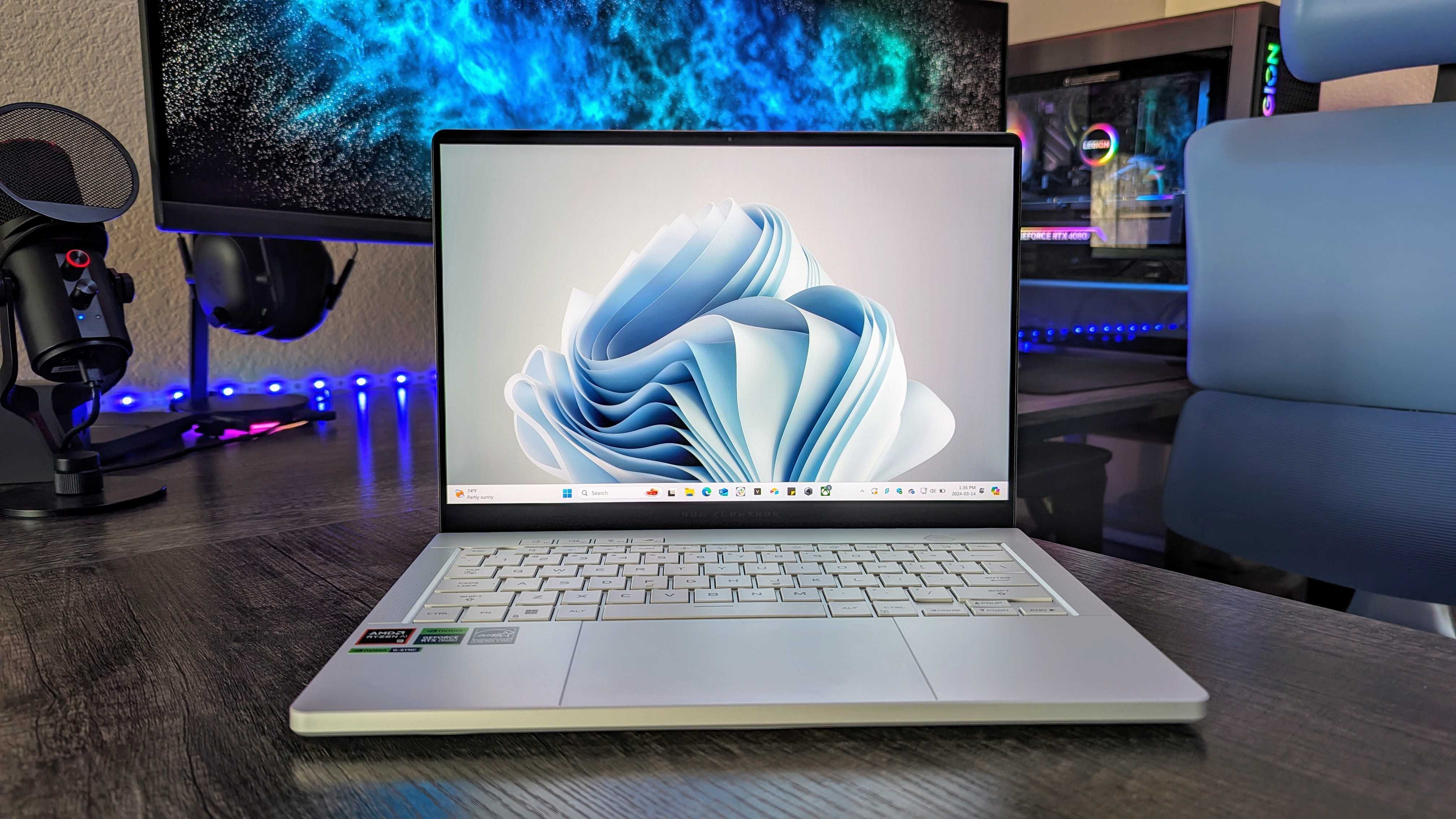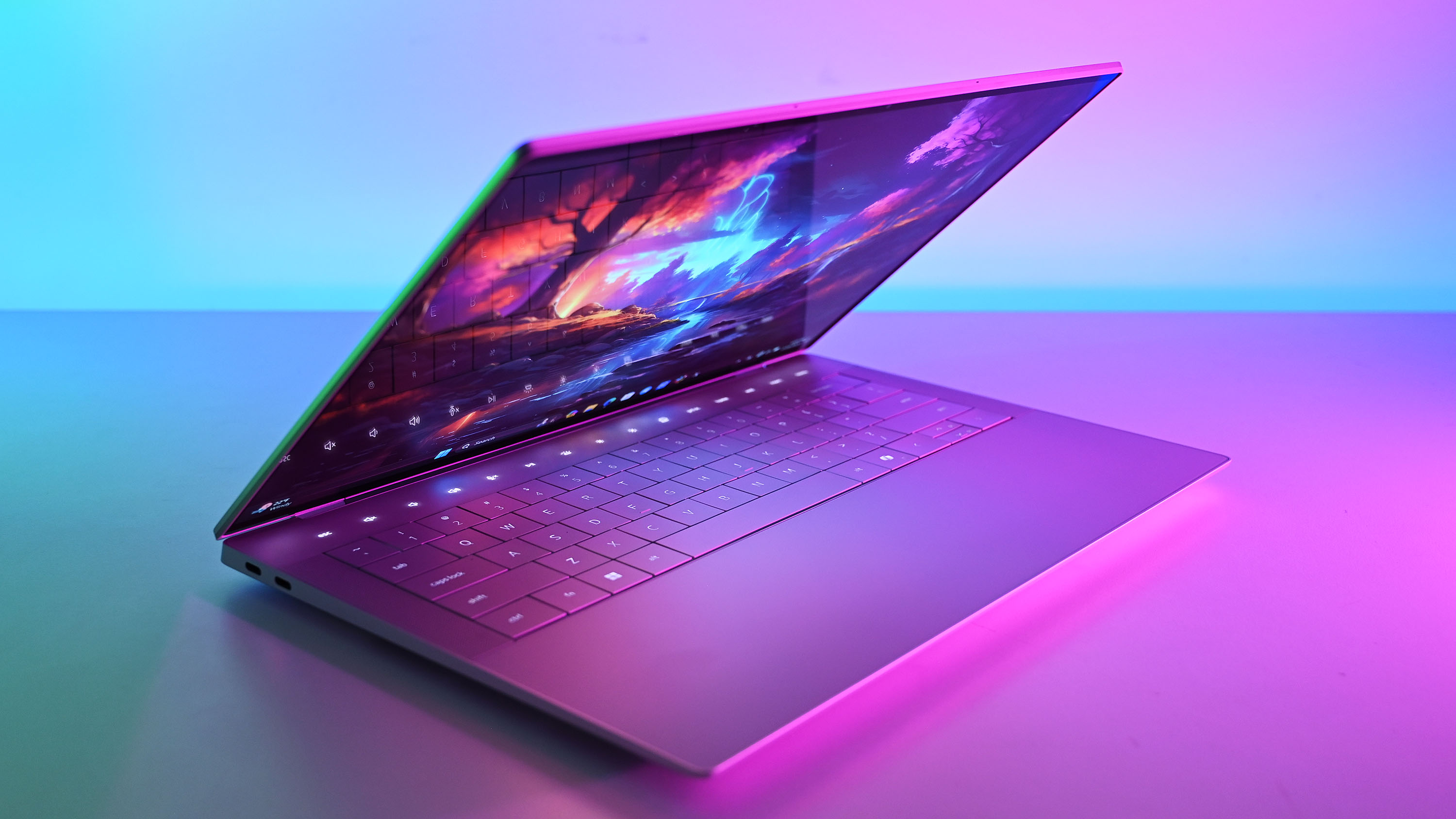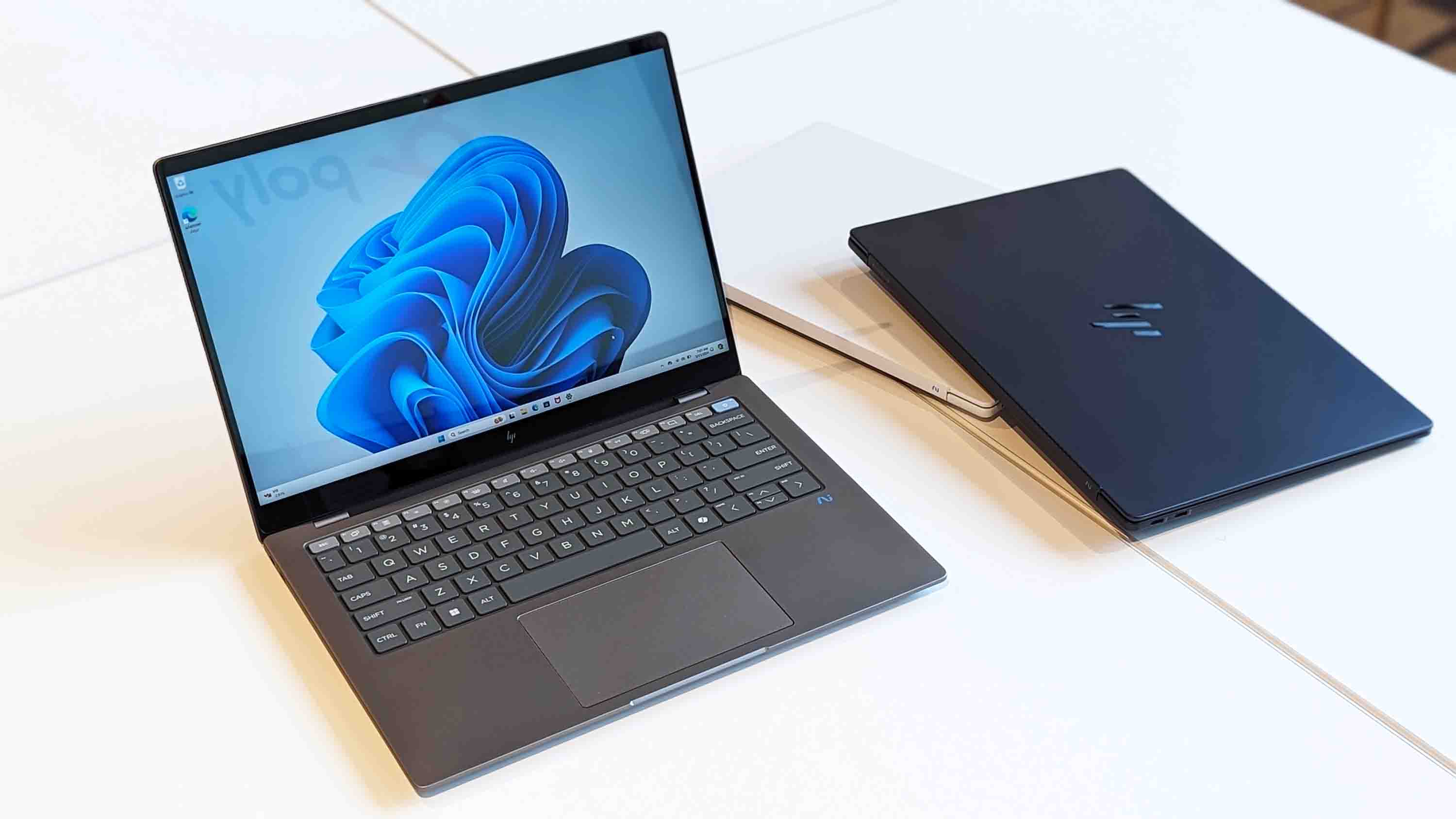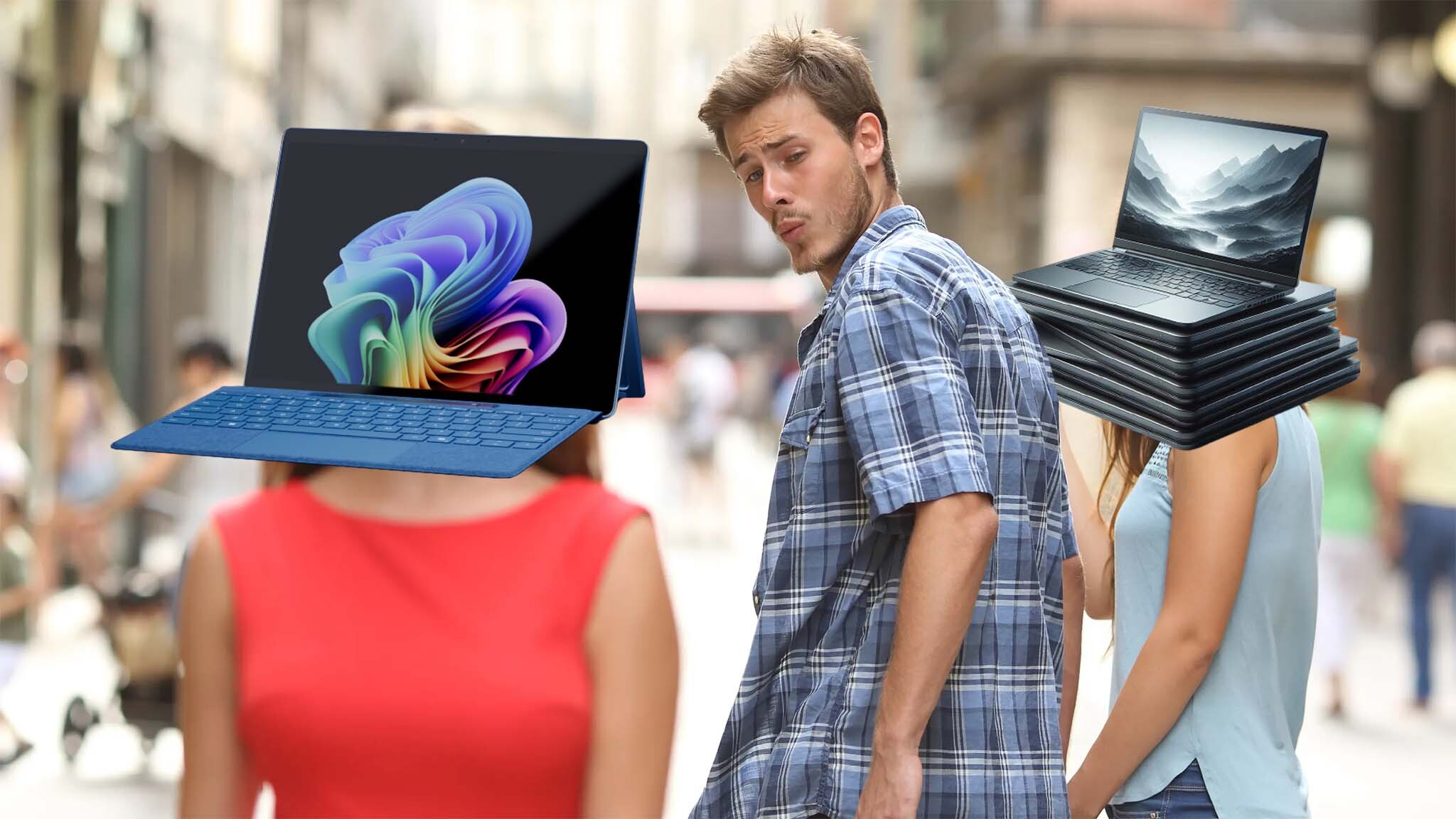
The AI computing revolution is rife with terms and buzzwords, and there's a good chance you've already come across "AI PCs" and "Copilot+ PCs" when reading about Windows devices in 2024.
While there is certainly some crossover between the terms — for example, all Copilot+ PCs are AI PCs — you should be aware of some major differences when shopping for a new PC. Let's look at what these definitions mean, how their features differ, and, ultimately, which sort of PC is better for your needs.
What is an AI PC?

Let's first take a look at the base "AI PC" term. Even with all of the AI news coming from the likes of NVIDIA, Intel, AMD, Microsoft, and Qualcomm, nailing down an exact definition isn't always easy.
In a general sense, an AI PC has certain hardware inside designed for local AI acceleration. That might be a powerful discrete graphics card (GPU) with specific cores — like NVIDIA Tensor or AMD RDNA — for AI acceleration, or it might be a modern laptop chip with specific hardware.
That specific hardware is a Neural Processing Unit (NPU), and it's available in certain Qualcomm, Intel, and AMD laptop chips for Windows devices. The chip is designed primarily to boost the performance of AI and machine learning tasks without having to tap a cloud of servers for the workload.
If you ask Microsoft, an AI PC requires a System-on-Chip (SoC) with an NPU, onboard Copilot software (which comes by default with Windows 11), and a dedicated Copilot key on the keyboard. If you instead ask Intel, it'll say all you need is a modern CPU with GPU and NPU for your device to be considered an AI PC. Microsoft leans into Copilot undoubtedly to sell new laptops, but really, all you need is hardware specifically designed for AI local AI acceleration.

Circling back to the chips that go into an AI PC, Qualcomm's Snapdragon X Elite and Snapdragon X Plus are leading the way when it comes to NPU performance. These SoCs can hit up to 45 TOPS (Trillion Operations Per Second) on the NPU side, which we'll explore more in the Copilot+ section.
AMD and Intel each have current-gen CPUs with an NPU, and they power many of our favorite AI PCs. The first run of Intel Core Ultra CPUs has an NPU with about 11.5 TOPS of power, while AMD's current Ryzen 9 8040 mobile chips set aside 16 TOPS for the NPU.
Intel has announced that its next-gen "Lunar Lake" chips will have an NPU running at 48 TOPS, and AMD has already unveiled Ryzen AI 300 mobile CPUs containing an NPU capable of 50 TOPS. These chips will power upcoming laptops released in 2024, but they won't initially ship with Copilot+ compatibility.
What is a Copilot+ PC?

Copilot+ was unveiled during Microsoft's Event 2024 as a new term for Windows AI features, as well as the laptops capable of running them.
Copilot+ is not the same as Copilot; the latter term denotes Microsoft's AI assistant, which anyone with an internet connection can access. It's also not the same as Copilot Pro, which is a subscription service for Copilot that provides priority access to the Copilot cloud, faster image generation, integration with Microsoft 365 apps, and more. Copilot+ is not a subscription service.
The new Copilot+ term is primarily used to denote a next-gen set of AI features coming to Windows 11. These features require an NPU with at least 40 TOPS of power, as the computing is done locally without requiring an internet connection.
Windows Recall is undoubtedly one of the most controversial new AI features coming to Copilot+, and Microsoft has already backpedaled on its implementation (which will now be opt-in by default). Windows Recall works by taking snapshots of everything you see and do on your PC for quick searching later, which sounds handy if you can get past the security concerns.
Windows Recall is getting the most attention due to security and privacy concerns, but Copilot+ will also allow you to:
- Translate video and audio in real time with Live Caption.
- Enhance your video and audio further with advanced Windows Studio Effects.
- Explore advanced AI edits in compatible design and editing software.
- Explore suggested visual and contextual edits in displayed content.
- Leverage Cocreator for advanced local image and text creation.
- Upscale games automatically with Windows Auto Super Resolution.
Which devices have Copilot+?
The entire first wave of Copilot+ PCs is powered by Qualcomm's Snapdragon X chips with an NPU capable of 45 TOPS. As mentioned, current-gen AMD and Intel laptop CPUs don't hit the 40 TOPS requirements for Copilot+, but that will change in the near future when next-gen chips are released. Both Intel and AMD have unveiled NPUs with more than 40 TOPS that are compatible with Copilot+.
On NVIDIA's side, it was revealed at Computex 2024 that RTX-enabled devices will one day get access to Copilot+. That only makes sense considering how RTX 40-series mobile GPUs can provide up to 1,000 TOPS of power.
Even though the NPUs (and GPUs) are powerful enough, don't expect next-gen Intel, AMD, and NVIDIA laptops to have access to Copilot+ right away. Microsoft and Qualcomm have paired up to bring the first wave of Copilot+ PCs, and we won't likely see Copilot+ PCs with anything but Snapdragon X until late 2024 or 2025.
The first Copilot+ PCs — including those from Acer, ASUS, Dell, HP, Lenovo, Samsung, and Surface — are expected to begin rolling out on June 18, 2024 (with some models coming later). Best Buy is currently the best place to preorder Copilot+ PCs, as you can score a free 50-inch 4K Smart TV with most models.
Which one is better for you?

The Copilot+ advantage, as it stands now, is twofold. Qualcomm's Snapdragon X ARM64 chips represent what Windows Central Editor-in-Chief Daniel Rubino calls a "Great Reset" in the Windows PC industry, bringing chips with unprecedented performance and efficiency for Windows on ARM.
If you'd like to test out the impressive claims made by Qualcomm — which we'll be testing ourselves as soon as we get our hands on review models — you'll also get Copilot+ features baked into Windows 11.
On the other hand, buying an AI PC doesn't necessarily mean you'll get Copilot+. For example, the Dell XPS 14 (9440) and ASUS ROG Zephyrus G14 (2024), two of our favorite AI PCs, are powered by Intel and AMD chips that don't hit the 40 TOPS requirement set by Microsoft.
While the NPUs inside can still help with local AI acceleration through Windows Studio Effects and third-party software, you won't have access to the likes of Windows Recall, Live Captions, AutoSR, and other features exclusive to Copilot+.
Bottom line? Don't be too concerned (at least not yet) about not having access to Copilot+ via laptops powered by Snapdragon X chips. There are plenty of outstanding Windows laptops on the market, and despite a lack of Copilot+ compatibility, they'll be the right choice for plenty of users who aren't ready to take the full Windows 11 AI plunge.







